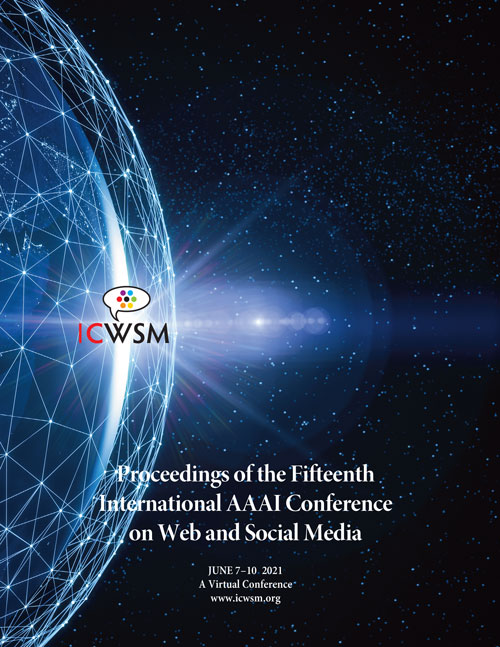Understanding the Diverging User Trajectories in Highly-related Online Communities during the COVID-19 Pandemic
DOI:
https://doi.org/10.1609/icwsm.v15i1.18112Keywords:
Measuring predictability of real world phenomena based on social media, e.g., spanning politics, finance, and health, Subjectivity in textual data; sentiment analysis; polarity/opinion identification and extraction, linguistic analyses of social media behavior, Trend identification and tracking; time series forecasting, Organizational and group behavior mediated by social media; interpersonal communication mediated by social mediaAbstract
As the COVID-19 pandemic is disrupting life worldwide, related online communities are popping up. In particular, two “new” communities, /r/China flu and /r/Coronavirus, emerged on Reddit and have been dedicated to COVID- related discussions from the very beginning of this pandemic. With /r/Coronavirus promoted as the official community on Reddit, it remains an open question how users choose between these two highly-related communities. In this paper, we characterize user trajectories in these two communities from the beginning of COVID-19 to the end of September 2020. We show that new users of /r/China flu and /r/Coronavirus were similar from January to March. After that, their differences steadily increase, both in language distance and membership prediction, as the pandemic continues to unfold. Furthermore, users who started at /r/China flu from January to March were more likely to leave, while those who started in later months tend to remain highly “loyal”. To understand this difference, we develop a movement analysis framework to understand membership changes in these two communities and identify a significant proportion of /r/China flu members (around 50%) that moved to /r/Coronavirus in February. This movement turns out to be highly predictable based on other subreddits that users were previously active in. Our work demonstrates how two highly-related communities emerge and develop their own identity in a crisis, and highlights the important role of existing communities in understanding such an emergence.Downloads
Published
2021-05-22
How to Cite
Zhang, J. S., Keegan, B., Lv, Q., & Tan, C. (2021). Understanding the Diverging User Trajectories in Highly-related Online Communities during the COVID-19 Pandemic. Proceedings of the International AAAI Conference on Web and Social Media, 15(1), 888-899. https://doi.org/10.1609/icwsm.v15i1.18112
Issue
Section
Full Papers

